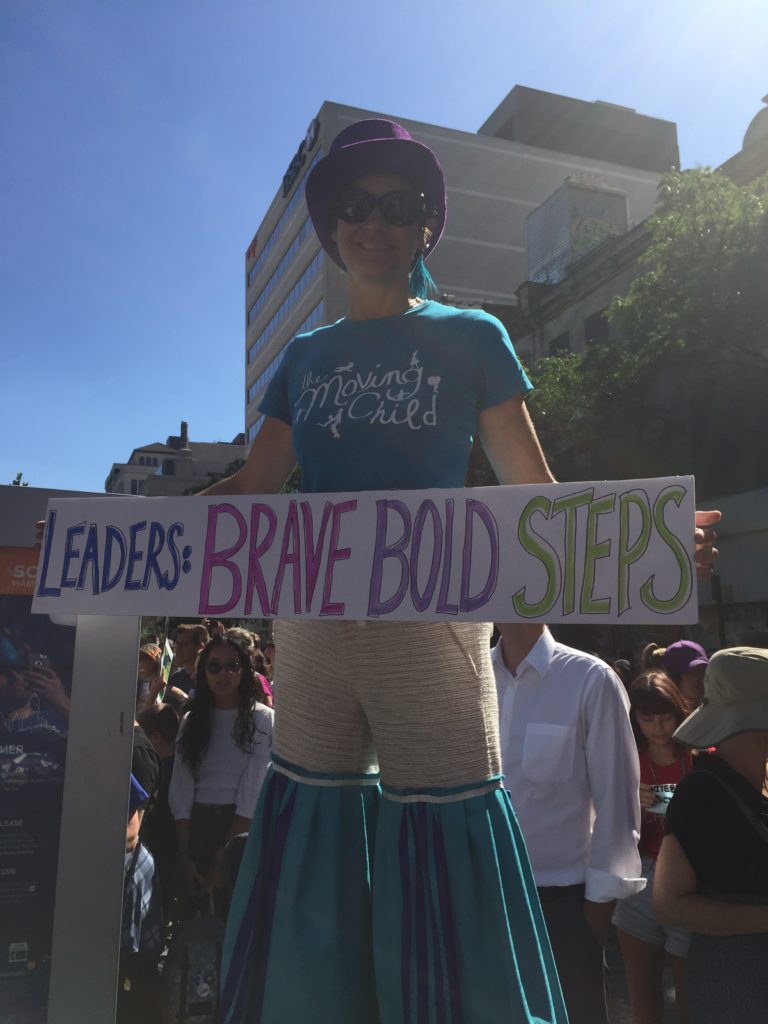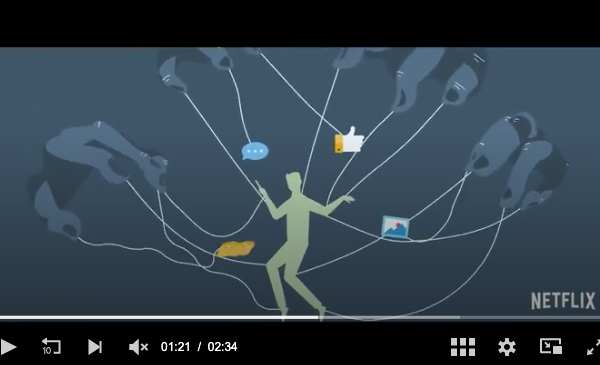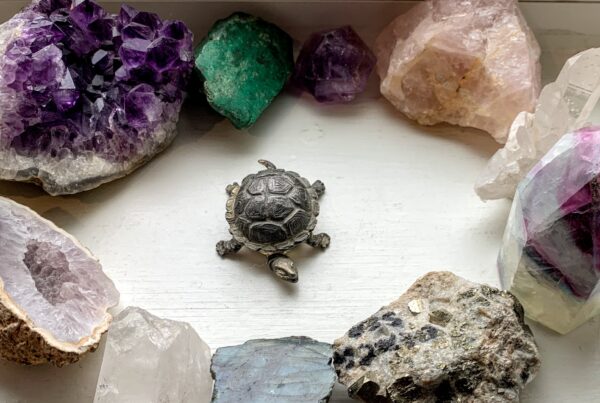In the last year I’ve had my first few client presenting with what boils down at least in significant part, to climate change anxiety.

Clients have been presenting with panic, overwhelm, insomnia, and an incline towards depressive symptoms. Their dominating thoughts and worries are about the hopelessness of the climate situation.
The magnitude of the climate crisis paired with a sense of powerlessness makes these reactions quite reasonable. In fact I along with Greta think that it’s good to panic… for a bit.
Clearly we need to move panic into action and create meaning for our lives rather than letting it slide us into depression. What more awful outcome for the planet than to let those who are concerned become ineffectual?
“Of all the dangers we face, from climate chaos to nuclear war, none is so great as the deadening of our response.” Joanna Macy
I often wonder whether the backdrop of the current political and ecological crisis isn’t a contributor to many people’s experience whether they name it as such or not. Certainly the extent of use of social media seems very tied into anxiety levels though many clients either dismiss the impact or don’t want to change their behaviour.
What can a therapist do?
As any decent therapist I want to know other factors going on, in order to make a therapeutic plan. Some places to explore include:
- Is there also a history of anxiety stemming from another source?
- Any history of trauma?
- How much action related to the climate are they taking?
- How connected with others are they around this issue? And what impact does this have (helpful/unhelpful)?
- Are there other reasons they feel stuck in life or hopeless?
- What internal voices or parts are they aware of around this theme? What relationship did their family of origin have with their environment and climate change, and with action in general? What roles did they have in their family of origin? Were their ideas and action valued?
My goal isn’t to dismiss a client’s climate concerns as they are indeed real. I want to explore in order to understand more about how the individual responds to challenges, and for example how they deal with difficult feelings, whether they can regulate their emotions and use them to inform their thinking. After we broaden the picture we can make specific goals together and move forward.
Ultimately I believe we can use this challenge as a way to understand ourselves and where we get stuck, thus opening the opportunity to evolve individually and in relationship, so that we can be of use collectively.
What do other people say?
Eco-psychology approach
The Open University offers a useful introduction to an eco-psychology approach to climate anxiety (written by Mary-Jayne Rust and David Key). It is simple to read and comes with interesting activities to do with a friend, including sentence stems like:
- “When I think about what is happening to our world I feel …
- The feelings I find difficult to tolerate are (e.g. anger, fear, powerlessness, hopelessness, grief, etc.) …
- The way I deal with these feelings is …
- What inspires me about living at this time of crisis is …
- My gift that I have to contribute to this time of crisis is …”
Joanna Macy – The work that reconnects
Joanna Macy PhD is an author, teacher, a scholar of Buddhism, Systems Thinking and Deep Ecology. I strongly recommend her inspiring and hopeful work that reconnects which brings together wisdom from her 6 decades of activism.
“Active Hope is waking up to the beauty of life on whose behalf we can act. We belong to this world” Joanna Macy
The good ol’ BBC – optimism and influence
Perhaps as a Brit I’m biased but I did find some good articles here. BBC Three in the UK has a series on eco-anxiety including Eco-anxiety: How to spot it and what to do about it. In this article Owen Gaffney, author of a climate action paper says “Eco-anxiety is the right response to the scale of the challenge. But I am an optimist. We live in an age where individuals have more power than at any time in history. Look at your sphere of influence – employer, networks, family – and influence them. We don’t need to convince 100% of people, only 25%, then an idea can go from marginal to mainstream.”
Duncan Geere who edited the report points to the action we can take: “Firstly, make climate change a factor in the decisions you make around what you eat, how you travel, and what you buy. Secondly, talk about climate change with your friends, family and colleagues. Finally, demand that politicians and companies make it easier and cheaper to do the right thing for the climate.”
Flight shame and train bragging: Apparently these are new popular terms originated by the Finns as explained in another good BBC article. #jagstannarpåmarken for example translates as #istayontheground.
Managing your well-being: free advice
As with any manifestation of anxiety, basic self care is fundamental. Check out anxiety counselling for info on symptoms and approaches.
- Check the basics: food, water, sleep and exercise. Without these building blocks nothing much else can help.
- What are you doing that brings joy to your life? What quality social connection time you’re getting? What impact are you having on those around you?
- Consider the impact of your social media time and your connection with your widget. Is it enhancing life or increasing stress? There is such a thing as too-much-information and we have to be the ones to create strong boundaries for ourselves here, cos facebook ain’t going to.
- Consider reducing your on-line time and increasing your in-nature time (have you tried a forest bath!)
- What other practices support the state of mind that you’re after? Find some of my ideas in 5 Unusual ways to reduce stress.
In terms of self-regulation tools, check out my post on the polyvagal ladder, and a simple qi gong practice that I love.
Get involved! Groups in Hamilton Ontario
- Environment Hamilton
- Sustainable Hamilton Burlington – business-focused supports
- Green Venture
- Nature at McMaster
Please feel free to add other resources in the comments section.



